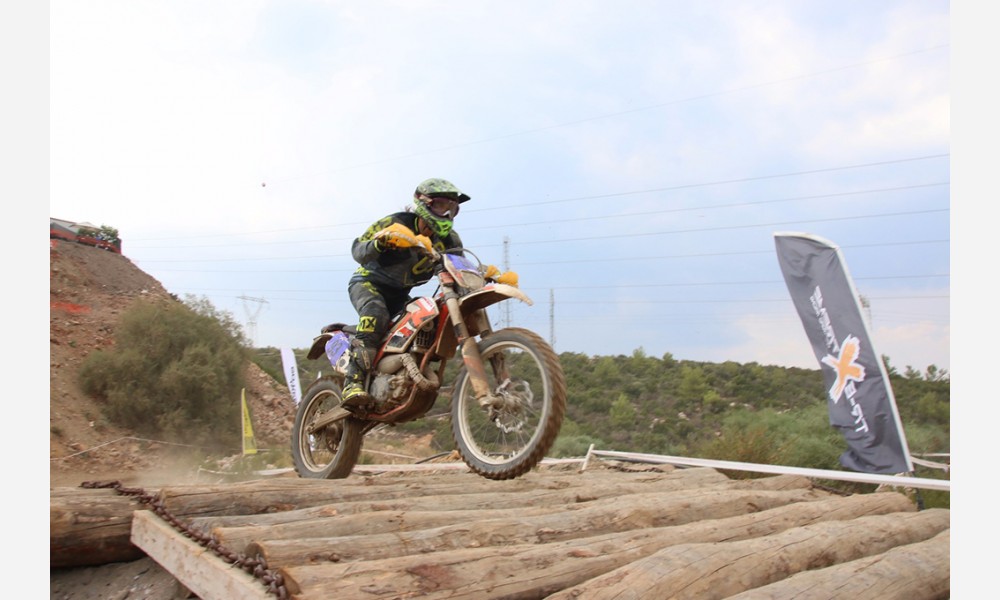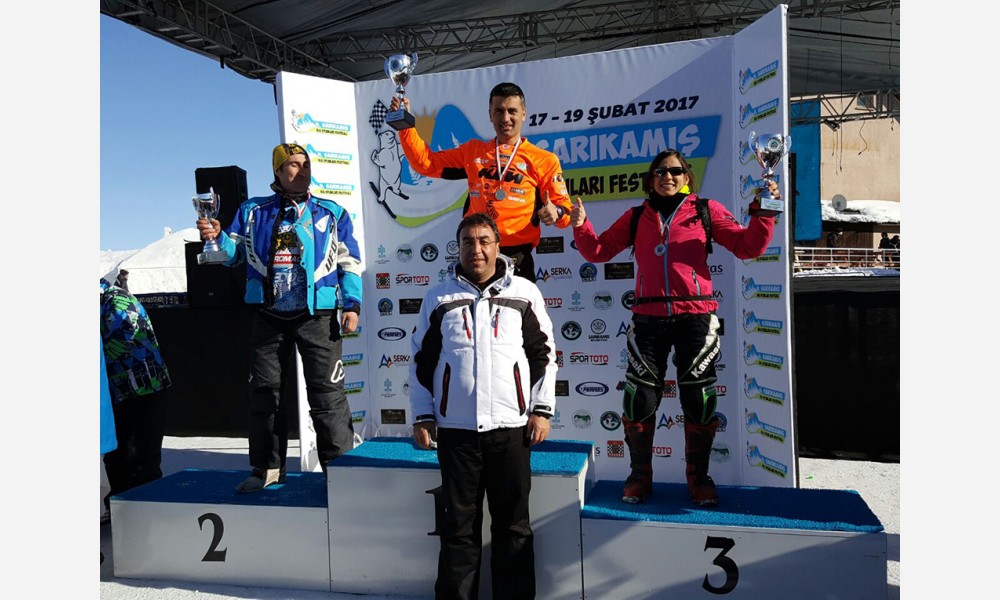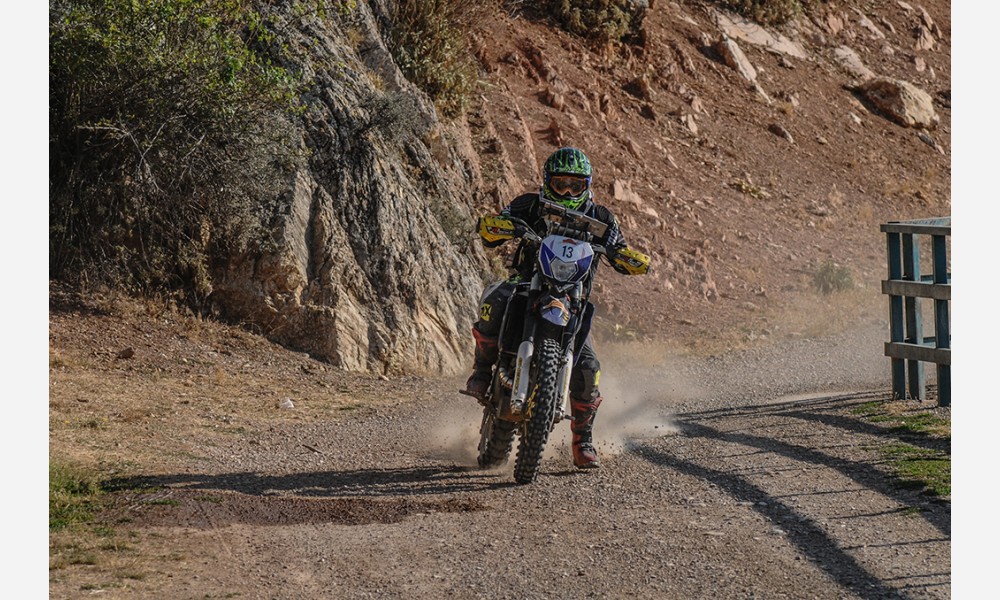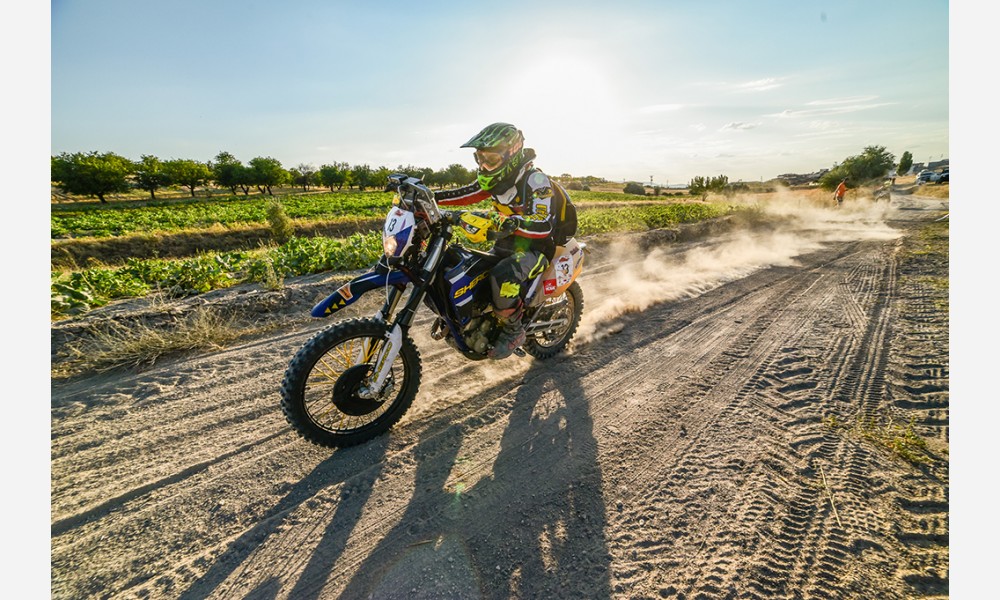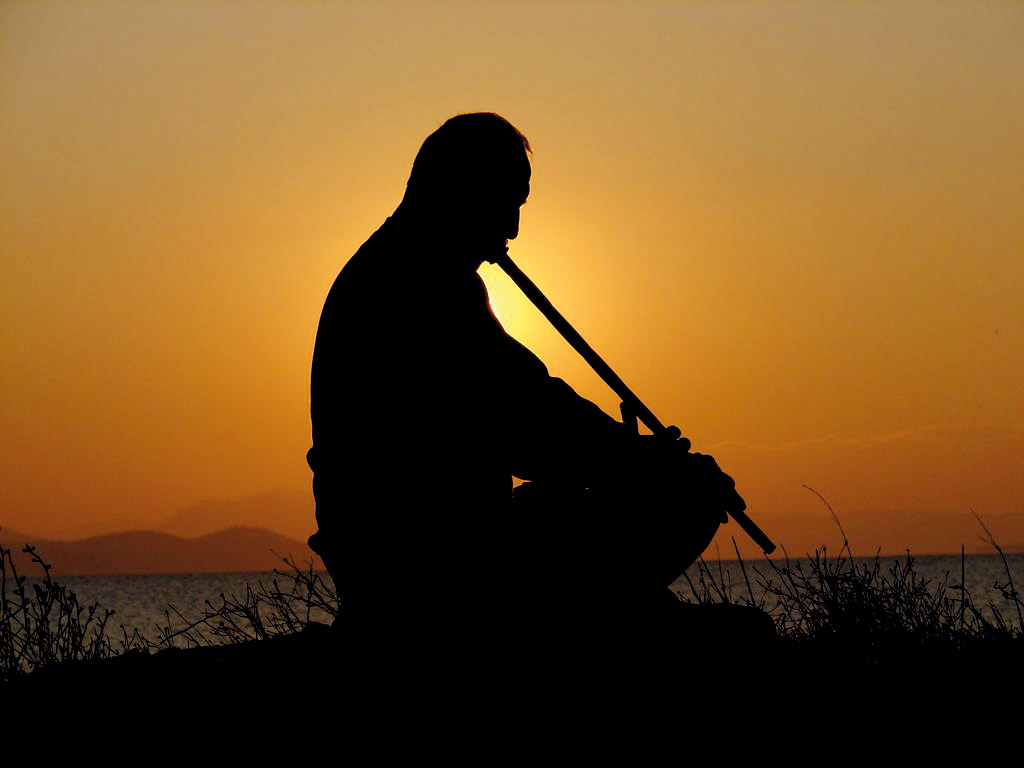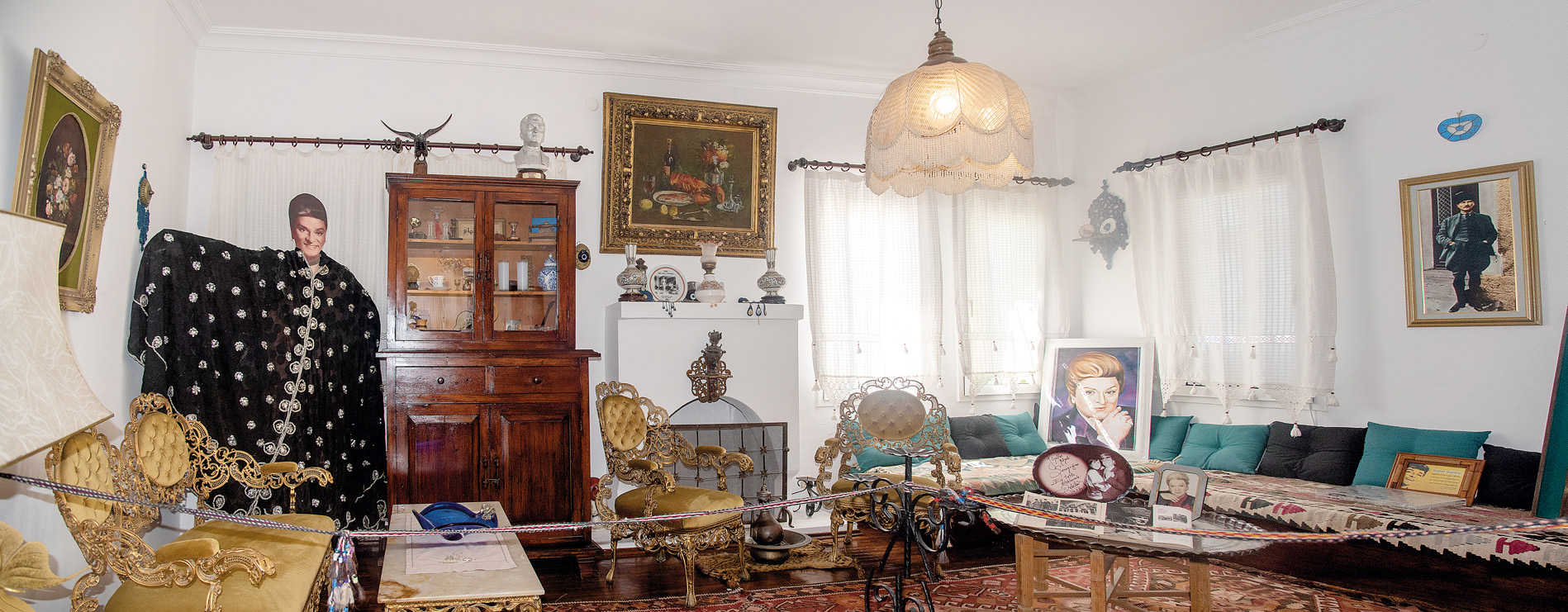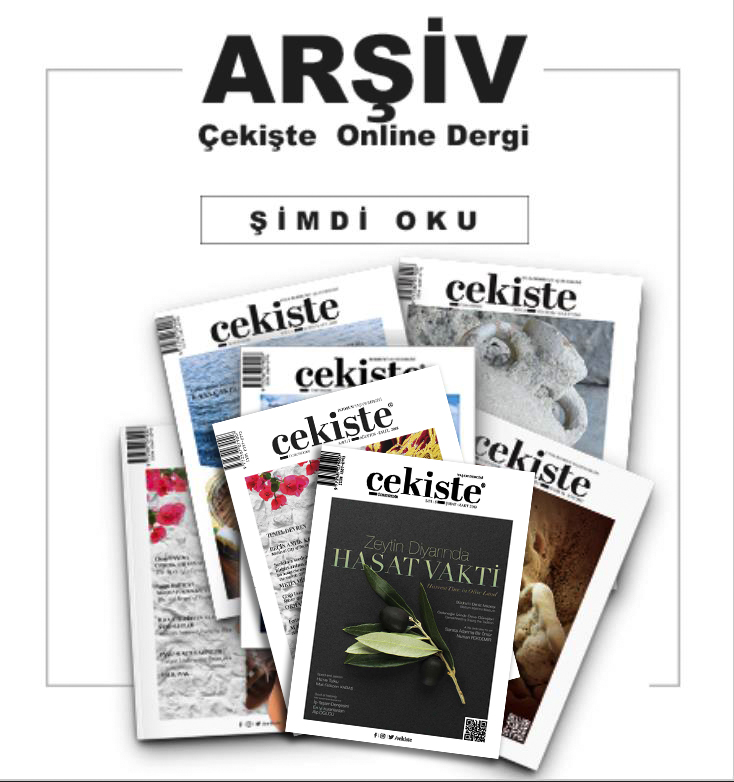Mati Gökçen Kabaş

Speed and passion... what a marvellous duo... Just like woman and success. In this issue, we met a champion who believes in herself, has become successful on the tracks and has never compromised her elegance. It is the familiar question that almost every child is asked until becoming an adult: “What do you want to be when you grow up?” The answer is certain: “Champion!” Gokcen Kabash (aka Mati), the first woman to complete the week-long TransAnatolia Rally, knew that she would be the champion when she was a child.
In our interview with the young rally racer at Dibeklihan; we paid attention to sports, her peak and success in the gorgeous atmosphere of the restaurant, Dibek Sofrasi.
We know that sport has always been important in your life. You have achieved serious success in motorcycle sport. How did this process begin?
Passion, work and sufficient desire are the most important factors. I've always envied women riding high cc bikes. As I was the only person interested in extreme sports in my family, I could not get the positive response. I was pretty set on it. First I started up having the required motorcycle rider license, spending the first salary I earned. That was when I first met Atilla. My target expanded from a scooter to a rally motorcycle. Girls who want to do this sport in Europe start with the help of their fathers when they are 2-3 years old. I started motorcycle sport with my husband's support when I was in my thirties. My husband has made important contributions in defeating my fears and discovering myself. My father is now comparing my ranks with each race. He was also relieved when it came to success and saw that it was self-controlled by me.
How did you overcome your fears?
When I cross a line myself, eventually it comes after that. Of course, the fear still exists. It is the fear that provides self control. The motorcycle is something unlimited. It is up to you to overcome without falling, injuring yourself, or breaking the motorcycle, so fear can be a very good thing indeed.
Can you share your first race experience with us?
In March 2015, I participated in the Turkey Enduro Championship. Success in this branch depends not on speed, but on the durability of the motorcycle and the driver. You go over the obstacles along the way; you overcome the stones, rocks and climb. Anyone who participated in the Fethiye stage knows how hard a race it can be. The rain never stopped. The soil had turned into slime, the rocks and planks had become as slippery as oil. I had not ridden in the rain and in the mud until then. Although it was a very challenging stage, I completed it; however I was disqualified because of lapse of time.
In the women's category I became the Turkey Champion in 2016. In September 2017, I completed the 4-day Duzce Baja Rally, which was about 500 km, as the only female rider.
I never thought I would race at -20 Celsius degrees on the Sarikamis Rally. At the end of the day I got lost because I didn't have the road book (rally navigator) apparatus. In the Canakkale “Baja Troia” rally that lasted three days and 800 kilometres, I came in thirteenth place among twenty male riders.
Shall we talk about the TransAnatolia Rally that you last participated?
7 days and 3000 km. It is a rally held in Turkey with a serious validity in the international sense. I am the first woman rider, who could finish that rally.
You are on the motorcycle 10-12 hours a day. Daily stages are 500 km average and you go over the mountain roads. The only time you stop is to fill the tank. I was the one, who had the oldest motorcycle with the lowest cc, in the Trans Anatolia Rally. People were wondering if this bike could finish the race. I was definitely so excited and it was a long rally that I was about to step up to the next level. The other participants, who had already participated in the Dakar Rally three or four times, were muscled and well-built. You are the only woman. You think and ask yourself if you are at the right place? Can I make it? It is crucial to finish a rally without having an accident as it is based on pace. There is nothing about the security. There are no strips, no marks. The route is the screen in front of you. For instance, we passed by Salt Lake. It is like a desert, there is nothing. If you make a mistake while following the navigator you will seriously get lost. There are satellite systems following you, they reach you but nobody wants to finish the rally that way.
There is a man in the first ten of the Dakar, Juan Pedroro. After the race he came to our tent and hugged me. He said, “I had not seen a woman like you before, if you can finish this race with this bike, Dakar is likely to be your next stop”.
Is it a safe sport?
It is considered safe as long as you have self-control, self-confidence and speed up your own limits. It can be dangerous but it's a gentleman's occasion. You learn how to simplify yourself. You are integrating with nature. You are trying to bring yourself and your bike safe and sound. That is why you are the limit.
Is your husband into this sport as well?
My husband is my mechanic. I mean my repairman. Indeed, he is a doctor, though he is good at engine mechanisms. Atilla is the one who carries out maintenance of my bike.
What is your next target?
My target is to compete in a European Rally, a desert rally. There is the Hellas Rally in Greece; I would like to participate in it. It is a rally of 3000 km and it takes 7 days.
Can you share an unforgettable memory of yours with us?
I was very excited the first day I started the TransAnatolia. I did the wrong calibration of the device that measures the kilometres, because of that I went 100 km extra and it took me about 12 hours to enter the paddock. I drove in the dust cloud, in heavy rain; I got lost. I finished the first day of the race like that.
I corrected the calibration settings the second day. I fired up the engine with great excitement. I fell off and my hand was injured. The bracket carrying the road book was stuck with the can. When the button on the road book is pressed, the paper rotates inside. The sound of that twisted paper is still in my ears. I had never thought to be so happy because of that sound. Then, I continued the race. At the end of the day, my road book began to swing and my brackets were cracked. The navigation device was about to fall. I fixed it. Later, I slowed down my pace and focused on finishing the stage. Each day of the seven days the bracket cracked.
Day three was the eternity of a terrific place, Salt Lake. By the way, it is unusual to read the road book in desert conditions. You read the degrees in the navigation and you should not miss them, as there is no sign around.
There were squirrels bouncing on the ground.
I can tell you that what made me calm was the fear I saw in their eyes. I stopped the engine and said to myself that there were creatures struggling to survive rather than just you. I was screaming inside my helmet at the Salt Lake stage. There were checkpoints within the stage, you have to pass them. Among all the riders, I became the only rider who crossed all the checkpoints.
Your real job is in pharmacy. Do you have the opportunity to work in the hustle and bustle?
I work in the State Hospital of Bodrum. But on weekends, I ride my motorbike almost all day. We do the workout in the mountains but we have a 300-400 metre track very close to the village we live in.





